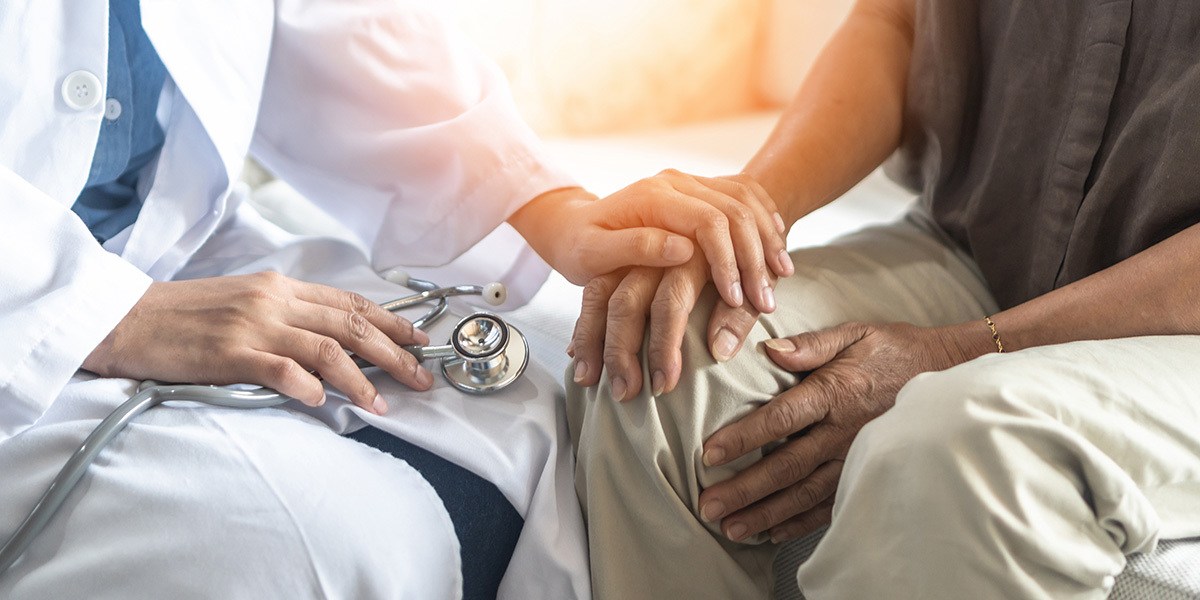
Access Programs and Studies
PPD Access Solutions enables drug developers to deliver life-changing therapies by opening pathways for early and continued access to patient treatment. Our purpose is to serve as a connection between prescribers and sponsors/suppliers to remove barriers and increase global access to treatments.
Even with recent trends toward accelerated approval, new treatments often do not make it to market fast enough to meet patient need. PPD Access Solutions provides the knowledge and services necessary to support a variety of options for early (pre-marketing) and continued (post-clinical trial) access to treatment, through our expertise in the following categories: open-label extension studies, rollover studies, expanded access programs and post-trial access programs.
Early and continued access programs and studies
Each access program and study begins with PPD Access Solutions subject matter experts, who consult with clients to strategize the best access option to meet their needs and those of the patients they serve. Our dedicated access program and study project management staff then develop and customize the project, tailoring PPD Access Solutions operational model to individual project needs.
Explore the various options for access and how PPD Access Solutions help provide clarity within a nuanced space.

Open-label extension studies
In open-label extension (OLE) studies, participants continue on the study drug to allow for long-term data collection at specific time points to meet health authority requests, support sponsor objectives or enhance understanding of the safety profile.
- These studies provide an opportunity to close multiple feeder studies, rolling patients into one OLE study. (Feeder study, or parent study, is the term for clinical trials whose patients transition into the OLE.)
- Of the options for continued access, OLEs provide an opportunity for the highest amount of data collection by having patients continue to follow a schedule of events that generally reduces burdens from feeder studies.
A sponsor may use the terms OLE and rollover synonymously. We make the distinction that OLEs are focused on continued long-term data collection (safety, efficacy, and/or tolerability), whereas rollovers are focused on continued patient treatment. A sponsor may also refer to an OLE as continued access, long-term extension or long-term follow-up.
Rollover studies
Rollover studies continue treatment access post-feeder studies for patients who participated in a clinical trial, to allow continuity of therapeutic benefits.
- These studies may bridge the gap between the end of clinical trial participation and country-level product commercial availability/reimbursement, or they may provide product for a defined period if the product will not be made available in country.
- Patients follow standard of care for most procedures, and a reduced amount of data is collected, with a focus on safety data.
Note: A sponsor may refer to a rollover as an OLE, extended access program, continued access, long-term extension or long-term follow-up.
Expanded access programs
We use the term Expanded Access Program (EAP) to encompass all types of global regulatory pathways specifically designed for continued and early access to medicines.
EAPs allow manufacturers to provide an investigational product (drug, biologic or medical device) to treat or diagnose a patient with a serious or life-threatening disease or condition. In these cases, the patient does not have comparable or satisfactory alternative therapies available and cannot participate in a clinical trial, at the unsolicited request of a treating physician.
- The intent is patient treatment, but depending upon the country, there may be options for data collection.
- EAPs are typically used to “expand access” to treatment-naïve populations. There are recent regulations designed specifically for “continued access” for post-study patients via EAP mechanisms.
The term EAP is most used in the United States. There are more than 100 terms used worldwide, with some countries having more than one term for different types of programs (e.g., nominative vs. cohort). Most common terms include emergency use program, named patient program, compassionate use program, treatment-use protocol and post-study access program.
Post-trial access programs
Changes to clinical trial regulations in specific countries (e.g., Portugal, Israel, Brazil) require sponsors to commit to continued provision of medication free of cost post-clinical trial closure.
- Select countries such as Brazil have designated post-trial access (PTA) regulatory pathways specifically for continued access for post-study patients. Other countries such as Portugal use existing EAP regulatory pathways rather than developing new pathways to achieve the same results of post-study access.
- While PTA programs have separate regulatory pathways from EAPs, the general requirements for approval are consistent with EAPs.
- PTA programs do not allow participation of treatment-naïve patients. The exception is patients who were part of a comparator arm within the clinical trial and now wish to access the investigational product. This exception is country- and regulation-specific.
Experience in the past 5 years
Access programs and studies supported
*Data current as of June 2022
Countries covered
Sites/prescribers participated
Patients treated

Access Solutions as part of the greater community
The PPD Access Solutions team – a group of access program and study subject matter experts, experienced project leads, and oversight directors – is passionate about patient access to treatment. We recognize the need to keep PPD Access Solutions distinct from our existing therapeutic expertise due to the complex regulatory and logistical considerations specific to this space.
Our dedicated support positions us to provide niche focus on our portfolio of early and continued access programs and studies, while benefiting from collaboration with the deep resources and expansive offerings of our full-service capabilities.
Value for multiple stakeholders in early and continued access programs
Our expertise cuts through the intricate and often confusing landscape of access programs and studies – providing clients the clarity and guidance to confidently navigate this space
Value to sponsor:
- Supports development of global launch strategies based on global usage patterns and market landscape predictions
- May reduce timelines to obtaining real-world data (RWD) and provide additional opportunity to assess product value to support continued successful product development
Value to physician:
- Provides the ability to offer promising treatments to seriously ill patients at an earlier point in the investigational product (IP)’s life cycle
- Offers physician-prescribers an opportunity to access IP that is typically available only to physician-investigators
Value to patient:
- Provides the opportunity for early or continued access to novel treatments prior to commercial availability
- May allow patients on existing clinical trials the opportunity to continue without a break in treatment
